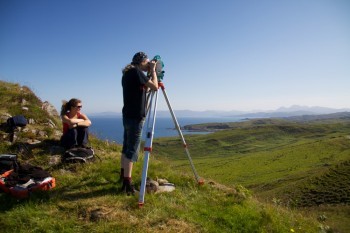Member grade is a recognition by your peers that you have achieved a high level of professional competence. Members (MCIfA's) are expected to have authoritative knowledge and depth of understanding of the sector and of a broad range of historic environment practices. You will have achieved this by continuing to add to your background knowledge about historic environment practice through CPD whilst working at Associate grade and beyond. You will need to provide examples of work that show the range of your knowledge and engagement with historic environment practice, and your reflection on it, at a high level.
You will now take full responsibility for your own work and may also be accountable for others. You may have responsibility for staff and/or for allocating budgets and resources, where appropriate. Now you are confident to make decisions across a broad range of complex, technical or professional activities. You understand how complex situations, considered together, inform the overall interpretation.
You can now see how work can be approached in different ways and have a high level of understanding about the impact of your work within the sector.
For examples of evidence that you could use to demonstrate Member grade you can look at the specialist competence matrices developed by CIfA's groups.
If you are following a particular career path, look for training and learning resources that are not only subject specific but targeted to the appropriate grade. To prepare for roles that will give you the skills you need at Member grade look at developing ‘soft skills’ such as budget control, management skills, and ensuring you have an up to date knowledge of heritage legislation and policy. Continue to reflect on your CPD and to ensure it is aligned with your Personal Development Plan. At annual appraisals you could develop targets with your employer that will add to your evidence of Member level work.
Volunteering for CIfA committees such as the Validation, Registration and Accredited degree will deepen and widen your knowledge of the historic environment and CIfA’s work. Having an officer role in a CIfA Area or Special Interest Group, and representing them at Advisory Council will give you opportunities to play an active part in shaping the historic environment.
Other useful links and documents
Professional practice papers Full list here (login required)
Professional ethics
Advice from CIfA's Validation committee
CIfA annual conference



